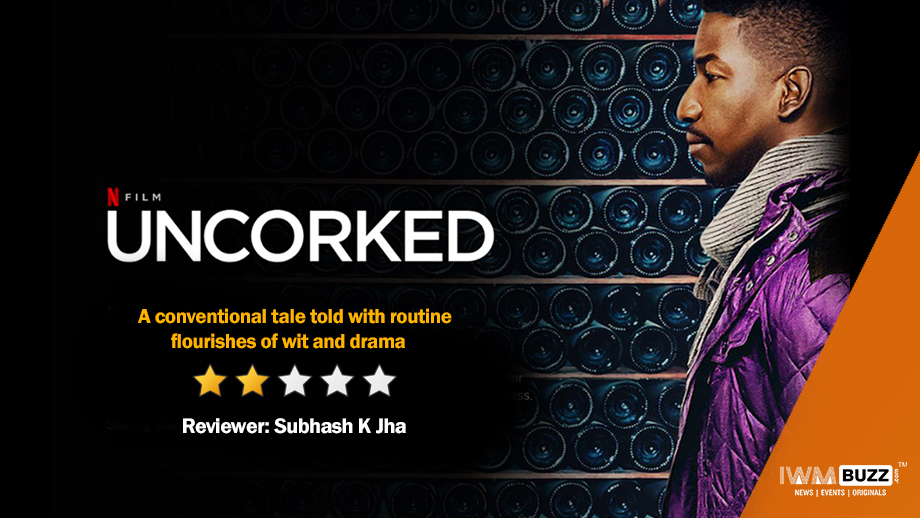Uncorked (Netflix)
Starring Mamoudou Athie as Elijah, Niecy Nash as Sylvia, Courtney B. Vance as Louis
Directed by Prentice Penny
Rating: **(2 stars)
In this season of a home-viewing boom, another American feature film, this one about a son who’d rather be a sommelier than a restaurateur, looks like a Black American version of the Parsi film Maska that Netflix released just two days earlier.
Sons don’t want to go into their father’s business, no matter how passionate the patriarch is about his calling. It’s a natural process of genealogical recoil. And we have seen any number of films on the theme. Uncorked uncorks no fresh fumes, no virgin aromas. It is a conventional tale told with routine flourishes of wit and drama.
For a film about food and wine there is a surprising lack of culinary seductiveness and a lot of whining about wine which we are meant to get impressed by. All the whining (about wine) does is to make us pine for Om Puri and his screen son Manish Dayal in 100 Foot Journey, that other far superior drama on paternity rights and culinary traditions.
The problem with Uncorked is, it conveys no sense of history only a feeling of hazy pride in the history of lineage and tradition. The father Louis (Courtney B. Vance) is into barbecues and the son Elijah (Mamoudou Athie) is into wine-tasting. Their clash lacks any serious perspective because the conflict seems less cultural and more a conformist’s take on non-conformism. Every move in the plot has a chess-like precision.
For all the wine that flows through the film the narrative is as dry as a wine cellar after a raid.
The family business which seems so sacrosanct to the plot is dismissed in a few scenes where we hear the father grimly proclaiming his pride about his heritage. Neither Courtney Vance or Mamoudou Athie seem to suggest any kind of deep affinity with their past, shared or individual. Their performances are serviceable, clinical and they don’t move us even after a family tragedy overtakes their lives.
It is Niecy Nash as the mother who brings a certain vivacity into the otherwise-dry storytelling. In her hackneyed role of the mother trying to balance the father and son’s egos, Ms Nash is delightfully animated and exasperated. There are lots of not-unimportant characters playing young wine-tasters studying their niche vocation in Paris. But they don’t come to life in any vital or appealing way.
The films wear a defeated look, as though it knew it had lost the battle even before the Coronova outbreak. So is it barbecue or wine for Elijah at the end? Does anyone care?


